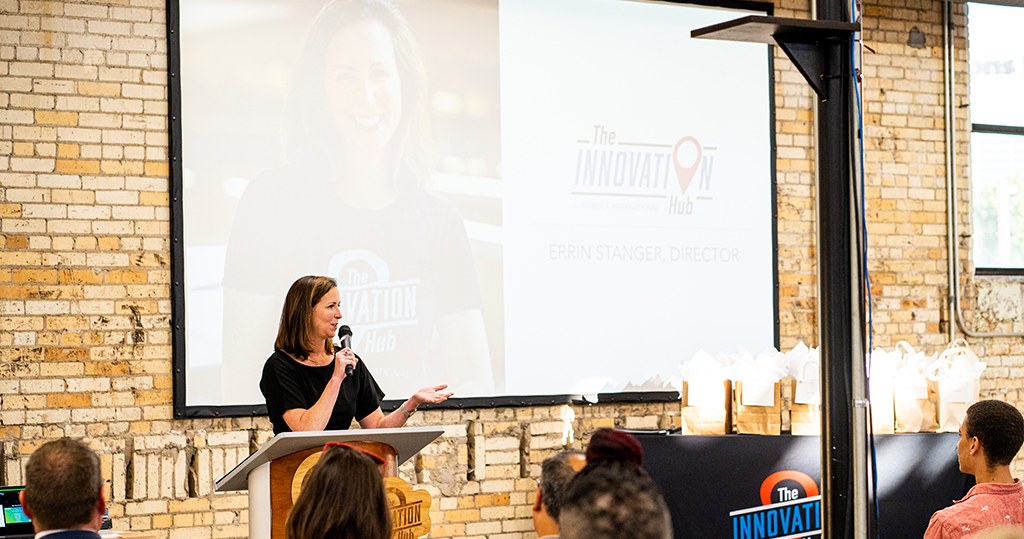
Interview: Errin Stanger from the Arkansas Regional Innovation Hub
For over 20 years, Errin Stanger, director of the Arkansas Regional Innovation Hub, has been driven by her love of community organizing and serving others. So when she learned that her town of North Little Rock, Arkansas, was in the path of totality for the 2024 eclipse, Stanger knew her organization could play a key role in creating hands-on learning experiences inspired by the eclipse that will lead to life-long impact — not only for her community, but for all Arkansans.
In particular, Errin believed that the Innovation Hub could engage Arkansas’ rural and underserved communities through a unique approach: a Mobile Makerspace that allows the organization to take learning on the road.
Using the Mobile Makerspace, the Innovation Hub team will be conducting field trips to 25 rural towns and cities in the path of totality. They will deliver unique STEAM solar eclipse experiences to students, and inspire a new generation of scientists, makers, artists and entrepreneurs. With these experiences, students will explore the science behind the solar eclipse by using tools such as ceramics, printmaking, robotics, fused glass, screen printing and more.
We recently spoke with Stanger about her work, her career to date and her lifelong passion for science. The transcript below had been edited for brevity and clarity.
Hi Errin, thanks for speaking with us. To start: What’s your favorite memory of the sun?
I was born in a really small town in Tennessee called Shelbyville. It’s the walking horse capital of the world, and I have really sweet memories from when I was a little girl of bright, sunny days riding horses with my mom. She passed away about three years ago, and so any time the sun is out, I’m reminded of her. We spent a ton of time outside together.
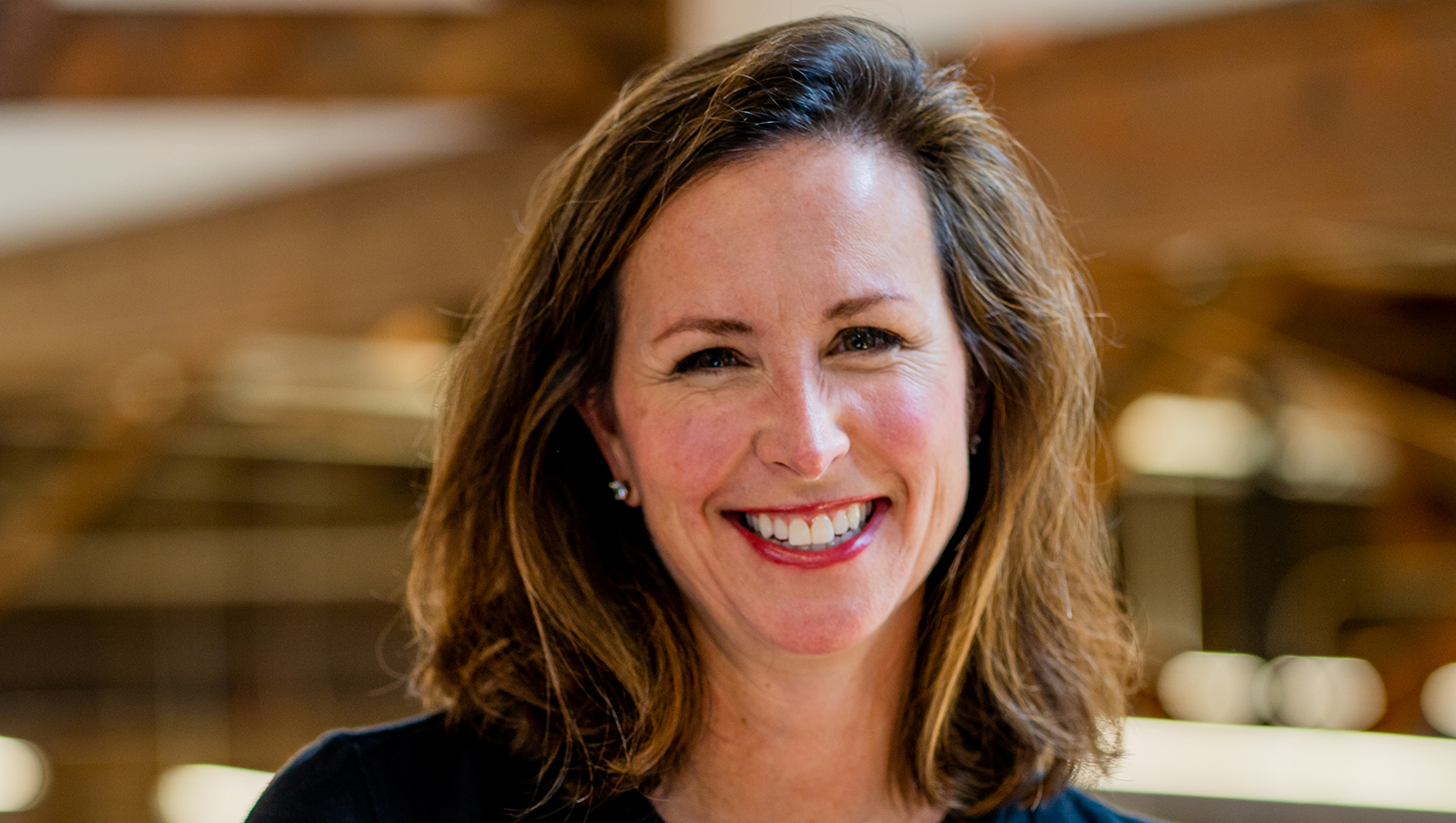
Thank you so much for sharing that beautiful memory with us. Can you tell us more about your background?
I’ve been working in nonprofits for over 20 years, but it’s not what I thought I was going to do. When I was younger, I thought that I wanted to be a heart surgeon or study cardiovascular disease because I always had this massive love for science, thanks to a fabulous science teacher in sixth grade. I was sure that I wanted to go to medical school and was wholeheartedly set on that path.
But soon after I graduated from college, I got a call from my sister. She had been diagnosed with stage four breast cancer. I didn’t know it at the time, but that phone call changed the trajectory of my professional career. I remember sitting down and thinking that I didn’t like breast cancer and I wanted to do something about it. I reached out to our local affiliate of Susan G. Komen, a national breast cancer foundation. From there, I was introduced to the world of nonprofits. The executive director at the time became my mentor and showed me the ropes of what it looks like to be a part of a nonprofit that is both successful and joyful in a way where you can give yourself — but not wear yourself out — and still be a part of something special.
Tell us about the early days of the Arkansas Regional Innovation Hub.
Fast forward a few years, I’m in downtown North Little Rock, which had just begun the process of becoming revitalized. We realized that there wasn’t really a place for kids to come after school, and there wasn’t any place for adults to come who just needed to work or have access to arts or technology resources. We had this huge, empty building available, and the word “makerspace” was mentioned. At that moment, we took a really big risk because we wanted to combine the arts, and technology, and we wanted to serve adults. But here we are nine years later: the first makerspace in Arkansas.
We were able to take our dream and turn it into this beautiful 22,000 square foot building filled with science, technology, engineering, arts and math classes, as well as workshops for adults and kids. We also have a mobile unit called the Mobile Makerspace that travels across Arkansas, going to communities that can’t visit our North Little Rock location due to cost or distance. Being a part of this makerspace from the very beginning has been really special for me because I was able to combine my love of building community, placemaking and creating beautiful safe spaces with my love of education.
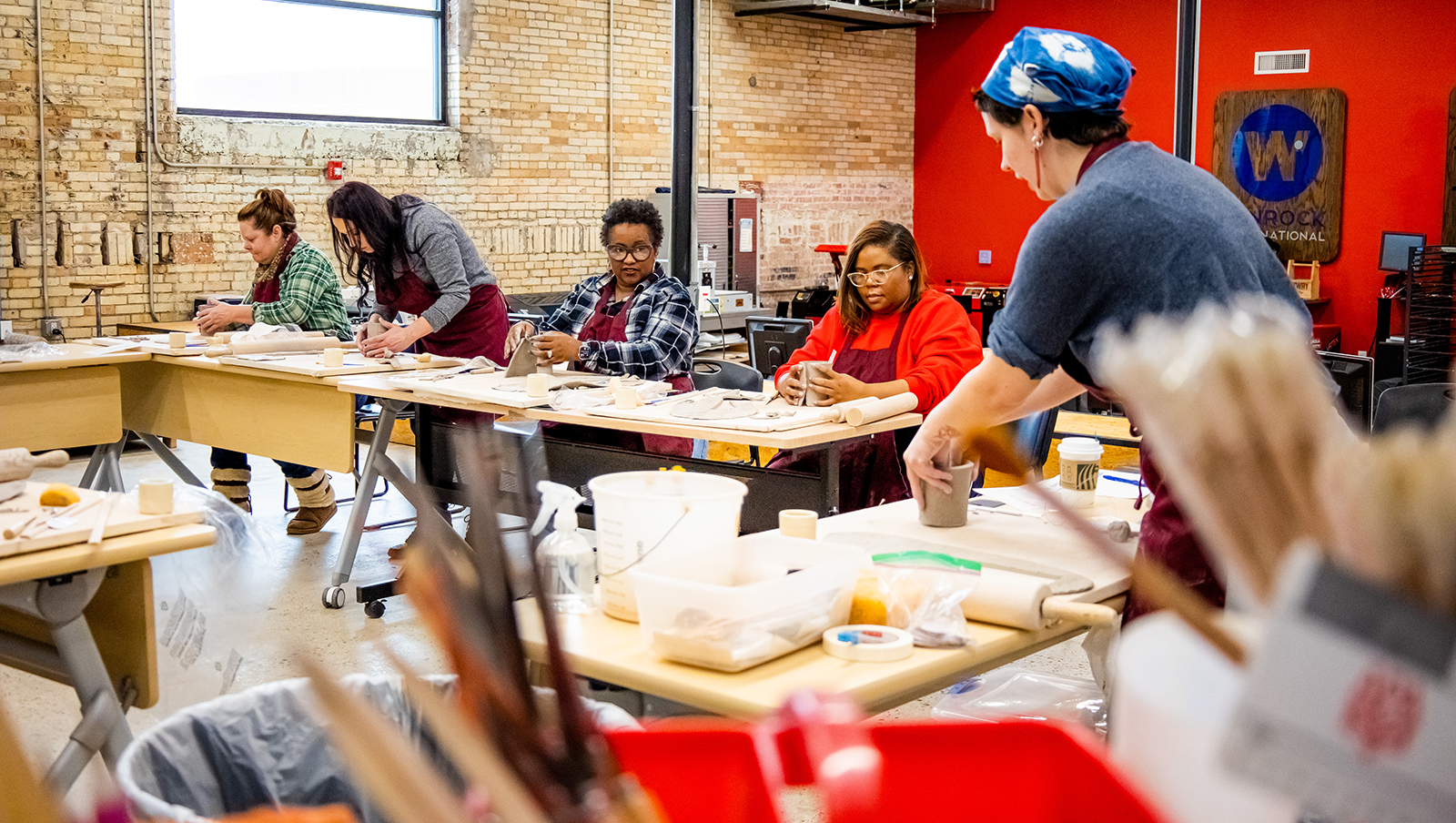
How did you first hear about the 2024 eclipse?
I first learned about it due to my involvement in Little Rock’s mayoral staff meetings and boards on which I serve. Someone on the city staff had experienced totality before and said, “Get ready because there’s going to be a lot of people here.” That got everybody’s attention, and I thought, “Wow, this is going to be much bigger than anyone had really imagined.” I’ve never experienced a solar eclipse, so when I met with my team at the Innovation Hub, we immediately jumped on board and began teaching kids about the science behind the solar eclipse.
What’s the Innovation Hub’s role in preparing Arkansas for the eclipse?
We do hands-on field trip experiences all wrapped around STEAM with our Mobile Makerspace. When we first heard about the eclipse, we knew instantly that we wanted to build a unique solar eclipse STEAM field trip. My team has been in the dreaming and ideation stage of figuring out exactly what we’re doing for the field trip, but so far we know we’re going to have a time-capsule component, which will be an envelope for each child to use on the day of the eclipse. We’ll be visiting 25 cities across the state of Arkansas that are in the path of totality, where we’ll teach kids about the science behind the eclipse. We have a unique way of being able to provide a hands-on experience where they’ll get a good understanding around the science behind the eclipse, and we’ll be handing out solar eclipse glasses as well.
On the day of the eclipse, we’ll have a watch party at the Hub with activities for everyone. The cities that are in the path of totality here in Arkansas are all figuring out the logistics and will be ready for all of the excitement.
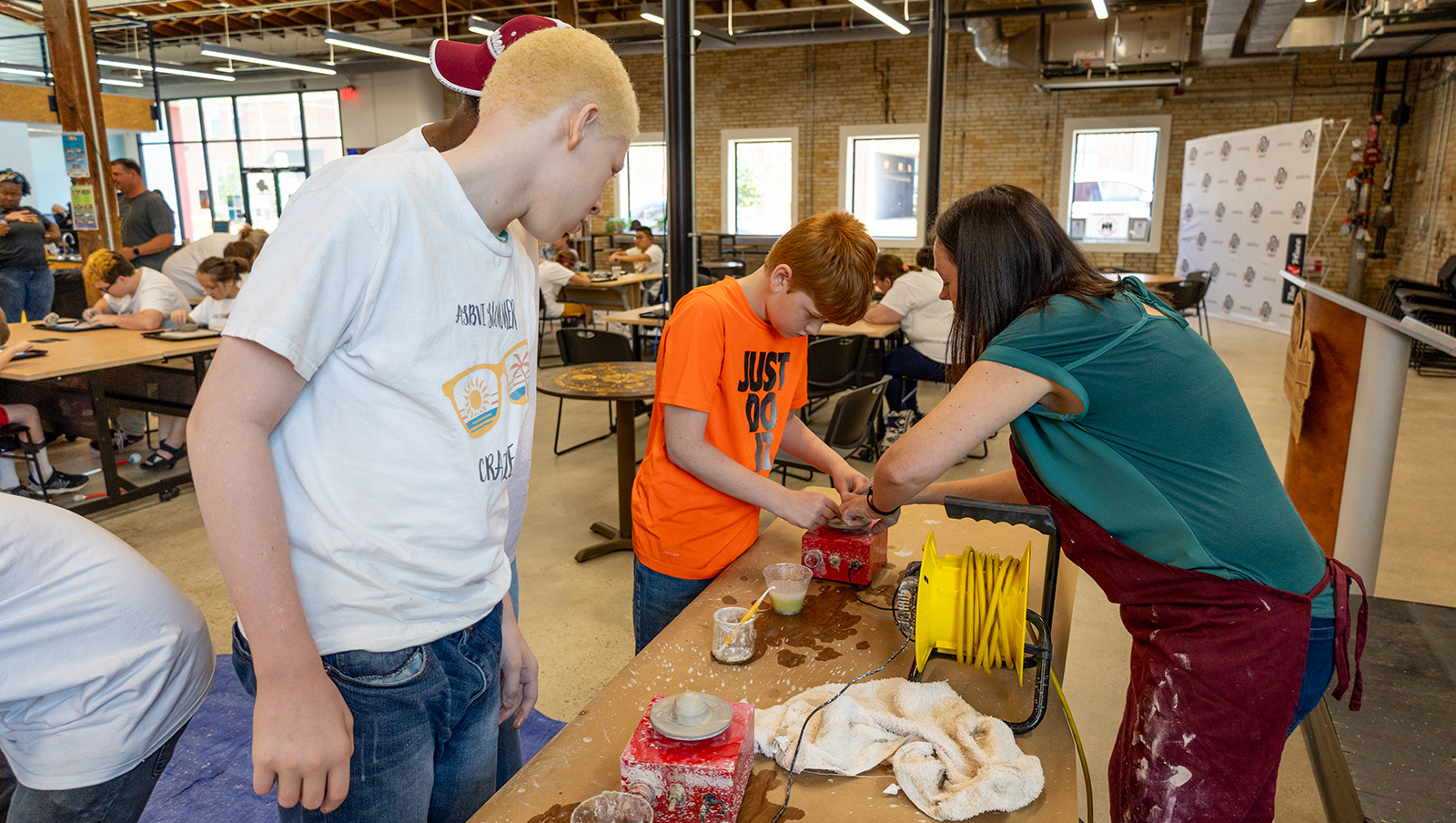
What is the Hub’s plan to reach different communities around Arkansas?
Part of our mission is to inspire innovation and expand opportunity. We’ve been embodying this by partnering with organizations based in areas that we’re not, or that are serving populations that we’re not seeing come through our door. We’re working with a few organizations around North Little Rock, including Seis Puentes, which serves our Hispanic and Latine community; Our House, which serves the homeless in our community; and ReMix Ideas, which works with Black entrepreneurs and families.
Our Mobile Makerspace was created to go to rural areas, and by going into these areas, we’re able to provide all this fun — free of charge! We’re always looking for ways to expand, to make sure that we’re reaching everyone that we can.
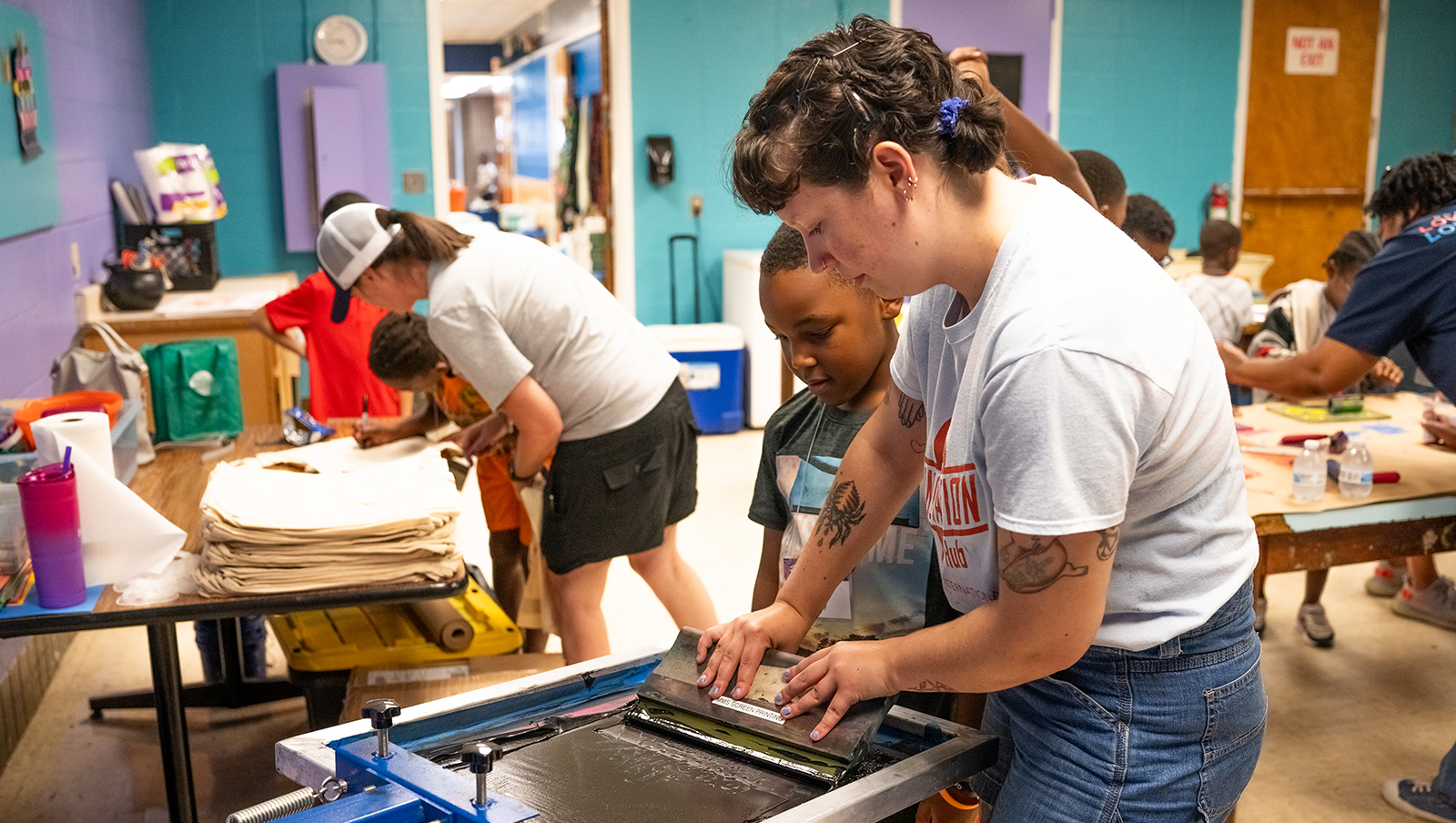
What are you looking forward to in the aftermath of the eclipse and how will the eclipse impact your community?
I am really big on impact stories. I love numbers and I’m a data girl, but for me there’s a big qualitative component to impact stories, especially around the eclipse.
On April 8, I cannot wait to capture people’s reactions and do some quick interviews. I think a lot of people don’t realize how they’re going to react. I’m excited about recording stories from kids. I think that’s a whole different equation because as adults, we have a pretty good idea of what to expect, but a child may not know as much. We’re planning to capture that first reaction from kids when they’re in the moment and when they experience it. We’ll also be following up with some fun questions to try to measure that impact, and of course, we’re going to be capturing interviews and videos.
Do you have any advice for other organizations or for other towns in the path of totality?
The first obvious thing that comes to mind is to have solar viewing glasses to protect the eyes of viewers. But I want to encourage those organizations in the path of totality to make sure that it doesn’t sneak up on you. I’m hearing some people say, “Oh, well, we’ll talk about that in February and March.” There’s going to be a lot going on, and there’s going to be a lot of extra people in your community. Advanced planning is absolutely essential. I’ve visited some cities and asked them, “Is your city ready? Are your emergency services ready? Is your community ready to experience this together? And what do you want that experience to be?”
I’m trying to encourage communities to have that bigger conversation; to make sure they plan for those logistics and get their message out to their community. It boils down to having really good communication both before and during the event, by ensuring that people and communities are not waiting until the last minute to get their plans in place. I also ask them, “How are you going to account for this in your life? What is that memory going to look like for you?”
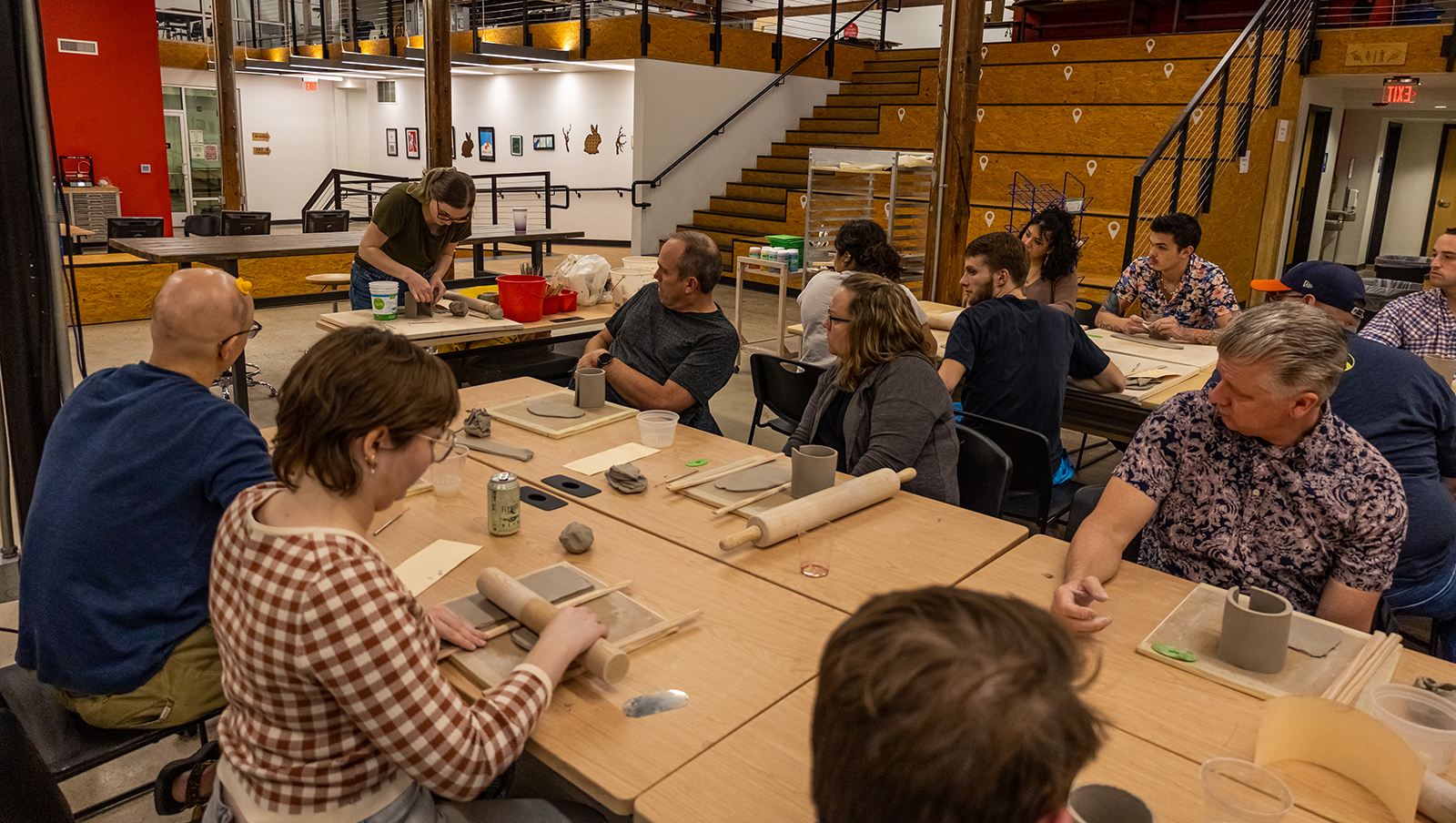
What will the day of the eclipse look like for you?
We are all different types of makers at the Innovation Hub. Some are makers that focus on wood, while others focus on 3D printing or maybe pottery or screen printing. People ask me, “Errin, what do you make?” And I think I help make our next generation of makers.
So on April 8th, in typical Errin fashion, I’m going to be serving others. I’ll hopefully see people get inspired and have “aha” moments. I, of course, will be looking up in awe, but I am thinking of others honestly, and taking their aha moments — that curiosity — and helping it grow into a love of STEAM. There will be an amazing scientific thing happening but it’s also a special time where you can have such a deep personal moment with yourself and with the community around you.
Thanks for joining us, Errin!
Thank you!